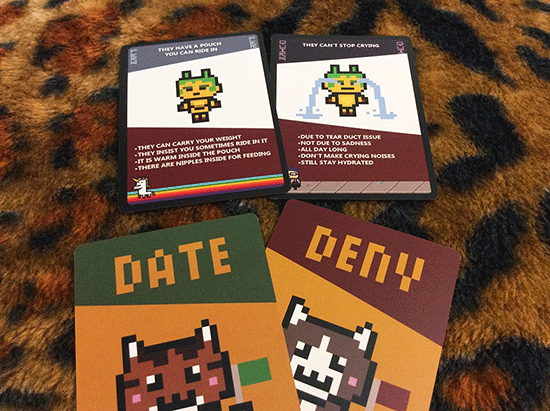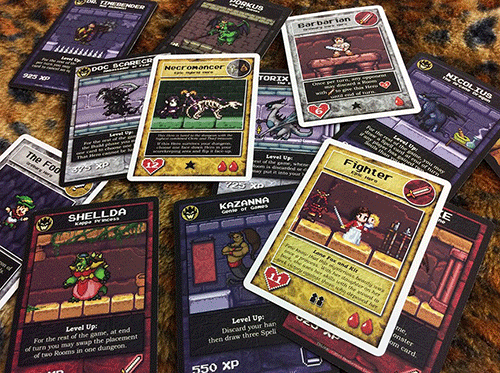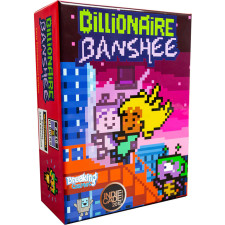Billionaire Banshee Review
on Jun 21, 2016
Billionaire Banshee is a party game that asks the tough questions. Like: would you date an award-winning novelist who wanted to eat one of your toes? What about a person who gives really good piggy-back rides but thinks they're a car? A centaur with mind-control powers? A handyman who can control their fertility by reading Shakespeare? A prude who never swears but likes to lick your armpits during sex?

Billionaire Banshee plays out like a very specific and surreal game of Would You Rather. It comes with two thick decks of cards, one labeled "Perk" and one labeled "Quirk." Each turn, a player reveals a random Perk and Quirk, and you and your friends must decide if that player would date the hypothetical match. So it's more like "Would you rather date a world-famous fashion designer who wears bread bowls for shoes, or not?" The player who most accurately predicts their friends' romantic proclivities wins the game.
As party games go, BB falls into the "manufactured fun" category. It runs on the premise that the sometimes funny, sometimes serious date traits described on the cards will be enough to spark an entertaining conversation, which is the real point of the game, winning and losing being almost entirely irrelevant.
This is quite clearly the product of an unhinged mind. It's not just the Perks and Quirks, which do wander into some very surreal territory. (Perk: If they finger your belly button, your headache goes away. Quirk: They have anime eyes.) It's also the blocky pixel art and retro video game box design, for which there's no obvious thematic justification. It's also the fact that the "Date" and "Deny" cards you secretly vote with are pictures of kitties waving green and red flags. It's also the weird, green-haired mascot used to represent your love interest in most of the pictures, a naked, troll-doll-esque figure of indeterminate gender. It's also the bullet points at the bottom of each card outlining the terms and conditions of that trait with an odd specificity. (The bread bowl one mentions that "they like the feeling on their toes," "new bowls worn every day," and "sometimes there's soup inside.")

Unfortunately, the game’s surreal brand of humor provides diminishing returns across repeat plays. The specificity that makes the cards so amusing on the first read--you get to pick the toe, your date will cut it off before eating it, and they'll never ask you about it again--means that your opinion of a certain Quirk isn't likely to change just because it's paired with a different Perk. Rarely, a specific Perk makes a bad Quirk ten times worse, or turns a negative into a positive (a partner with unpredictable mid-sleep diarrhea might not be so bad if they “dispense†your favorite flavor of ice cream), but most of the time a dealbreaker remains a dealbreaker. And the more original, off-the-wall Perks and Quirks are the quickest to go stale.
Lacking the modularity of Cards Against Humanity or the open-endedness of Balderdash, Billionaire Banshee relies on sheer originality to sell itself. In this context, it pulls off some impressive tricks. The Perks and Quirks are divided into three subdecks that you can add or remove at your discretion: the green troll thing on the card's back denotes a realistic trait, like opposing political views or infidelity; the unicorn signifies something more fantastical, like the ability to control animals with their magical ponytail; and the bear identifies adult content that you might want to remove when playing with teens or clergy. The fact that only a small subset of the cards revolve around sex is another point in BB's favor, hammering home the idea that you are considering potential life partners, not just one-night-stands. In the final tally, Billionaire Banshee might not be a party game to grow old with, but I'd give it my number.

 Customer Support
Customer Support  Subscribe
Subscribe 




 Account
Account  Wishlist
Wishlist 

